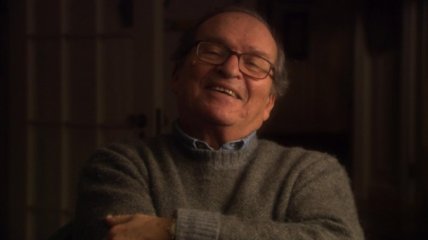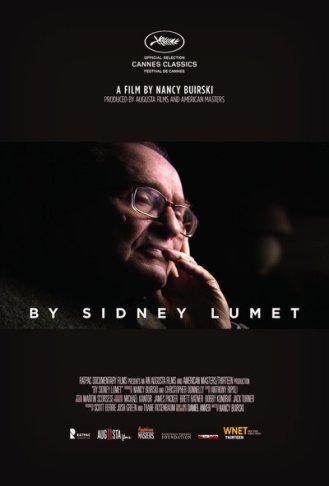 Along with Martin Scorsese, Roman Polanski, Brian DePalma, Arthur Penn, Francis Ford Coppola, John Frankenhiemer and Woody Allen, Sidney Lumet was one of the filmmakers from the period roughly beginning in the late 1950’s through the late 1970’s that shaped and formed my love of cinema. With the imminent demise of the studio system, that period was a significant turning point in American film. Overblown, over budgeted Hollywood productions and television would help end the Hollywood Studios stranglehold. A new order was on the horizon as were a new legion of filmmakers and Sidney Lumet was right in the mix.
Along with Martin Scorsese, Roman Polanski, Brian DePalma, Arthur Penn, Francis Ford Coppola, John Frankenhiemer and Woody Allen, Sidney Lumet was one of the filmmakers from the period roughly beginning in the late 1950’s through the late 1970’s that shaped and formed my love of cinema. With the imminent demise of the studio system, that period was a significant turning point in American film. Overblown, over budgeted Hollywood productions and television would help end the Hollywood Studios stranglehold. A new order was on the horizon as were a new legion of filmmakers and Sidney Lumet was right in the mix.

Like Frankenhiemer and Penn, all older than the “movie brats” of the ‘70’s, Lumet’s directing career began in the early days of television. He was a rebel in his professional career, just like many of the most famous characters he put on the screen. They were a legendary group of underdogs, individualists, non-conformists and losers ranging from Henry Fonda’s Juror 8 to Al Pacino’s Frank Serpico to Paul Newman’s Frank Galvin. His protagonists stood against hatred, a corrupt system and human indecency. While many of his films had a social conscience or a moral message, Lumet states he didn’t preach in his films. “If I do it well, the moral message will come thru.” I’m not sure how true a statement that really is since, in most of his more than forty-five films, Lumet, a man of blunt honesty, had a lot to say. You know where he and his characters stood. Serpico, Juror 8 and Frank Galvin, they had the guts to stand up to what they believed was the moral thing to do when all else was against them.
Lumet began his career as a child actor in the Yiddish theater and on Broadway. Among his stage credits was a role in the original production of Dead End. He never was a star but he worked a lot. His directing career began in TV where he worked on shows like Crime Photographer, Danger, You Are There as well as more prestigious shows like Studio One, The United Steel Hour and Goodyear Playhouse. It was 12 Angry Men writer, Reginald Rose, who recommended Lumet to Henry Fonda, who wanted to make the film version of his TV play. Fonda happened to be familiar with Lumet’s work and agreed. That was all it took for him to make the switch to the big screen. He never looked back.
 In By Sidney Lumet, filmmaker Nancy Buirski weaves a combination of generous film clips, stills and most important, a lengthy 2008 interview of Lumet by the late filmmaker Daniel Anker, into a fascinating mosaic of the late director’s career. Fortunately, Buirski focuses on the interview footage where we get to listen to the director himself as he reveals his passion and ideals.
In By Sidney Lumet, filmmaker Nancy Buirski weaves a combination of generous film clips, stills and most important, a lengthy 2008 interview of Lumet by the late filmmaker Daniel Anker, into a fascinating mosaic of the late director’s career. Fortunately, Buirski focuses on the interview footage where we get to listen to the director himself as he reveals his passion and ideals.
The film clips are masterfully constructed thematically, not simply in sequential order, which brings a clearer depth and understanding to the director’s work. After watching By Sidney Lumet you want to run out and watch all of Lumet’s again. I think that’s the highest compliment one can pay. A must see documentary for anyone seriously interested in film.
I shall certainly give this a look. Your clear-eyed review makes a must-see.
LikeLiked by 1 person
I watched a recent clip of a Lumet interview, which I think is from this film. Lumet talks about a live television play starring Lloyd Bridges, in which the latter is so emotionally caught up in a climatic speech about mob bigotry that he uses a four-letter word on TV. Love those kind of anecdotes.
LikeLiked by 1 person